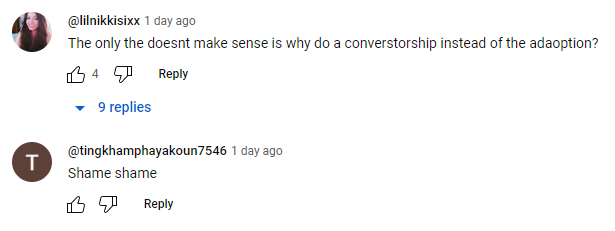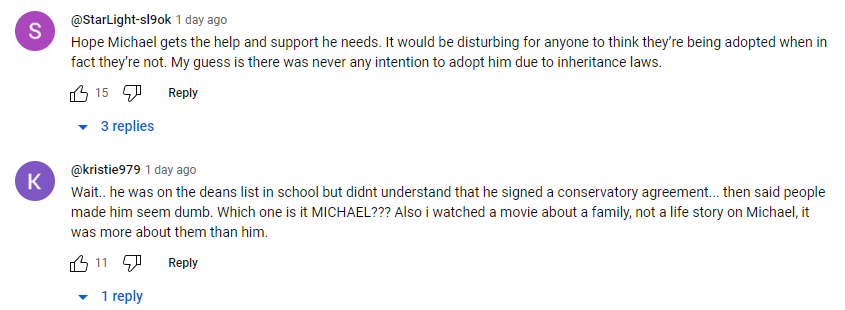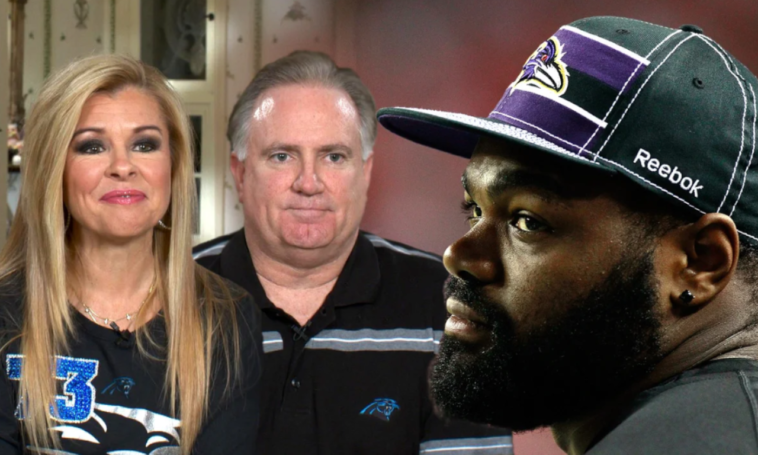The producers of “The Blind Side” do not ignore the controversy surrounding the picture.
Earlier this month, former NFL player Michael Oher, whose biography inspired the 2009 film, filed a court petition against the Tuohy family, alleging that they became his conservators in 2004, giving them ultimate power over his contracts and profiting financially from his life story.
According to Oher’s Aug. 14 petition, Memphis couple Sean and Leigh Anne Tuohy allegedly negotiated for themselves and their “natural born” children Sean Jr. and Collins “a contract price of $225,000 plus 2.5% of all future ‘Defined Net Proceeds'” from “The Blind Side,” which had gross revenues of up to $330 million.
He also said that the Tuohys were given a $200,000 grant to their Making It Happen Foundation.
According to an Aug. 24 statement, Andrew Kosove and Broderick Johnson, the co-founders and co-CEOs of Alcon Entertainment, who funded the film, have put the record right on how much the Tuohy family was paid.

The duo, who also produced the film, said that the contracts “did not include significant payouts in the event of the film’s success” and that “the notion that the Tuohys were paid millions of dollars by Alcon to the detriment of Michael Oher is false.”
According to the statement, their firm paid around $767,000 to the talent agency representing the Tuohys and Oher, with an agency fee presumably deducted before the cash was split among the five of them. (According to Sean, the family and Oher received around $14,000 apiece when “The Blind Side” book author Michael Lewis “gave us half of his share.”)
Kosove and Johnson also said that the athlete and his family would likely get future compensation.
“We anticipate that the Tuohy family and Michael Oher will receive additional profits as audiences continue to enjoy this true story in the years to come,” they said.
“Alcon contributed to the Tuohy family foundation in addition to these contractual payments.” We offered to make an equivalent donation to a charity of Mr. Oher’s choice, but he rejected.”

Furthermore, Kosove and Johnson’s statement defended the film itself, claiming that Oher’s lawsuit provided reviewers with “a justification to pick apart the movie fourteen years later unfairly—some going so far as to call it ‘fake’ or a ‘lie.'”
“We are as proud of the film today as we were 14 years ago when our amazing collaborators made it,” they said.
“We hope that our fellow filmmakers worldwide will continue to look for uplifting stories to tell and that they will have the freedom and empowerment to have their voices heard.”
Oher, now 37 and married with four children, said in his court appeal that the Tuohys misled him into thinking the conservatorship was similar to adoption and that he had just discovered last year that he had no familial links to the football family.

He added that the Tuohys told him “at no point” that they would have “ultimate control” over his contracts.
According to the petition, an April 2007 contract allowed the studio “the perpetual, unconditional, and exclusive right throughout the world” to utilize and represent Oher’s name, image, voice, look, and other features “without any payment whatsoever.”
On the other hand, Oher said in his petition that he never “willingly or knowingly” signed the paper and that “nobody ever presented this contract to him with any explanation” that he was signing a deal involving the rights to his name, picture, and life story.
“The Tuohys never controlled any of Mr. Oher’s contracts,” one of the Tuohys’ attorneys, Steve Farese, has stated.The Tuohys have announced their desire to dissolve Oher’s conservatorship after almost 20 years.




